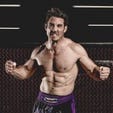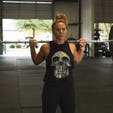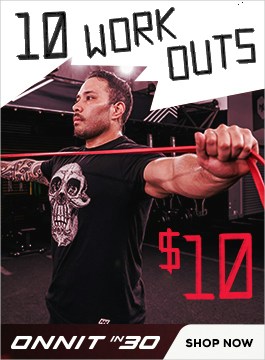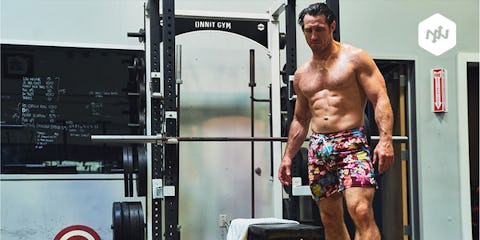
The life of Tim Kennedy is not for the faint of heart. Actually, it’s not really for anyone—except Tim Kennedy. The former UFC middleweight contender spent 15 years fighting in a cage while at the same time shooting terrorists as an Army Ranger-qualified, Green Beret sniper. When he found out he had made Isis’ hit list, Kennedy went on TV to offer the extremist group his home address and an open invitation to pay him a visit.
Though he’s now retired from MMA, Kennedy, age 38, still can’t play it safe. He’s risking life and limb like never before on national television with his new Discovery Channel show, Hard To Kill, in which he takes on some of the most dangerous jobs in the world to not only see if he can, but in the hopes that doing so will inspire you to do something amazing too.
Interview With Tim Kennedy: “They buried me in an avalanche”
Kennedy took our call at 12,000 feet in the Rocky Mountains—after digging himself out of an avalanche—and shared the simple secret to developing an iron will and an epic life.
Onnit: What do the bravest and toughest people you know have in common?
Tim Kennedy: A sense of humor, for one thing. Special Operations forces don’t smoke. They don’t drink very much. They have sex like rock stars, and they’re committed to their ideals. They’re not as different from other people as you think. It’s their ability to handle stress that makes them different, whether it’s gunfire, RPGs zipping by, or seeing death in front of them. They’re able to process that stuff in a healthy way. The further you get up into the tip of the spear in the military, the more similar you’ll see that all the guys are. It’s almost like it’s the same guy in a different body over and over again.
What is the ability that allows these guys to handle the kind of stress you’re talking about? Is there any way the rest of us can develop that, even a little bit?
Some of them are born with a predisposition to handle a lot of tough things. Some other guys learn how to do it along the way. But there’s no easy path. There aren’t really any drills you can perform or meditations that prepare you. It is a painful process that’s like the act of making a sword. You have a piece of steel that has a ton of impurities in it and you have to keep pounding it and heating it to get them out. It’s a process rooted in agony. But what makes it possible is committing yourself to something that’s bigger and better than you are.
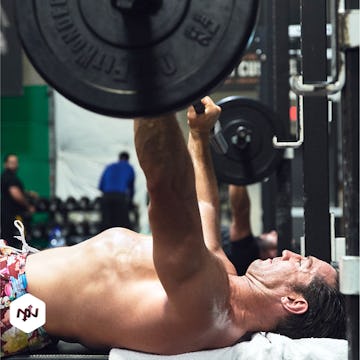
What was that big thing for you?
I saw planes slamming into a building on 9/11 and I wanted to go and kill everyone who was responsible. That’s not an inspirational story—that’s a revenge tale. I don’t know that I want other people to be inspired by that because it was a motivation that came from thoughts of anger and vengeance, but that’s how it started for me. You know, everybody who goes into Special Forces does it for a different reason. People have a chip on their shoulder, like me, or they have childhood fantasies of being badass warriors that they want to realize. But all of that gets burned away in that refiner’s fire and the thing that remains is a love for the person standing next to you and an admiration for being part of something that’s more important than you are.
While I was able to make it through the selection process for Special Forces, when I got to my team, I didn’t deserve to be there. All of the guys there were faster, stronger, more educated, and better at everything than I was. I was the new weak link in the chain. And my aspiration shifted from someone out for revenge to someone who would be able to stand next to those other warriors with his head held high. All the guys who want to get there just so they can look cool and say that they’re a Navy SEAL or a Green Beret, they don’t last. Ever.
Can you put that in civilian terms? What could motivate the average man or woman to be mentally tough and capable of heroic achievements?
People just need to be committed to being better versions of themselves for something or somebody. That might be their kids or wife. They might want to take a trip to Africa to dig a well or work for a non-profit that feeds the poor. It might be working with PTSD vets. To be a better version of yourself, you need something positive to work for and a willingness to make sacrifices in the process.
Let me talk a little bit about sacrifices. I get up at 5:30 every morning and go to bed at 11:30 at night. I work out two or three times a day. I go to the shooting range four or five times a week. And any time that I’m not doing those things, I’m with my family. It’s just discipline. If you want to get in shape so you can be a better provider, a better protector for your family, maybe your sacrifice is getting up 30 minutes earlier so that you can do 50 pushups, 50 situps, and take a walk before you have to leave for work. Maybe you decide you’re going to give up donuts or that shitty coffee from Starbucks. When you want to change your life, it’s a matter of picking small battles that you can win in the beginning. You win one, and then you pick another battle and another.
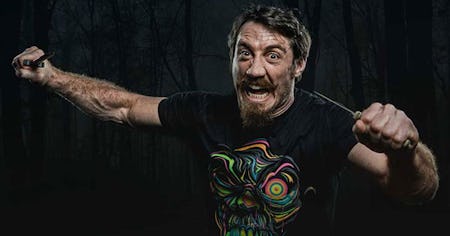
How do you avoid being weak and succumbing to temptation?
Those little battles you win, the good decisions you make, add up over time and keep you moving in the right direction. It’s also about putting yourself in positions where you won’t be tempted and it’s easier to make the right decision. If you’re married, and you believe in monogamy, and you’re traveling for work, you may have to decide not to go to the hotel bar at the end of the day. Don’t order that second drink. Don’t invite the intern who’s working the convention with you to dinner. Those little decisions will set you up for success.
Another example: if you know you like fried food, choose a different route on your way home so that you don’t drive by Chick-fil-A. When you get up that morning, give the money you’d usually spend on a sugary Starbucks coffee to your kid so that he or she can get something at the cafeteria that’s healthy. Those decisions are discipline. It’s a circle that builds on itself. The bigger decisions are easier when you’ve made the little ones.
For myself, I schedule training partners for my workouts so that if I don’t show up at the gym that day, I’ll hear about it for weeks to come. And because I know I’m training later, I’m going to decide to have a healthy breakfast that morning. To make sure I get up early to make breakfast, I’m going to go to bed at a decent time the night before. Then, because I have to go to bed early, I’m going to make sure I take care of my wife so we can both sleep beautifully and wake up and have a good day. You see how these things complement each other? One thing builds on another and life keeps getting sweeter and better.
Over time, you get stronger and faster. And then, maybe, one day when you’re in Las Vegas at a concert and gunfire starts, you’re going to be able to do the right thing. Maybe you can put a tourniquet on somebody who’s been shot or pick them up and run to an ambulance before they bleed out.
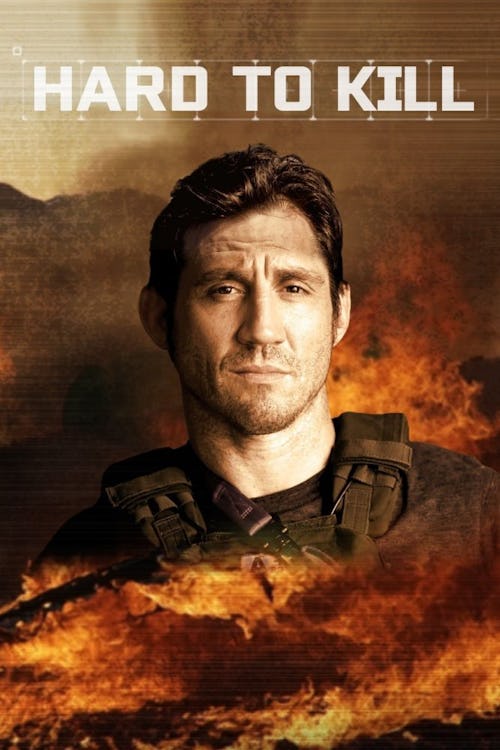
You’re not overseas at the moment, but you’re still risking your life for your Discovery Channel show, Hard To Kill. Can you describe what it entails?
I’m in the Rockies right now shooting it. I’m at almost 12,000 feet elevation. I took a PT [physical training] test where I ran a mile with a 2,000-feet elevation change wearing a backpack that had 50 pounds of weight in it. After that I went to the bottom of a hill and dug into the side of it and they made an avalanche collapse on top of me so that I was buried under the snow.
The only way it’s possible for me to do these things is because of the little choices I made years ago. They build a foundation from which you can do extraordinary things.
What brought you up there? What are you hoping to accomplish with the show?
There are ski patrol guys here who use explosions to cause controlled avalanches so that they don’t have uncontrollable ones that kill hikers or skiers. It’s a crazy, dangerous job, and they save so many lives every year. My mission was to come here and experience what it’s like to be them on their best and worst days.
Sounds terrifying! Why risk your life like this, after all you’ve already been through?
There are these groups of people—like these ski patrollers—that nobody recognizes, appreciates, or cares about. But they do remarkable, special things, every day. People go skiing, they get on the slopes, and they think, “This is a beautiful day.” They never realize that there was somebody there earlier that morning at sunrise risking their life before the lifts even open to try to make it safe so that other people can enjoy themselves.
Pilots are another group. Everybody walks onto a 747 anxiously awaiting their peanuts and beverage service, but they don’t think about the guy who, 100 years ago, got into the cockpit of a machine that had never been flown before and said, “Fuck it, I’ll give it a whirl.” There are no crash test dummies for an airplane. There’s just a pilot with a big set of balls. So, what I’m saying is, there are all these jobs that people are doing that make America this amazing place. I am trying to pay homage to the people that do these things that allow us to get up, have a cup of coffee, drive our kids to school, and live blissfully. The reality is that we’re able to do those things because there’s someone else who is bleeding, sweating, and getting buried alive so that you can do them.
Why should I be the one to pay that homage? Because all of those other things that I’ve done in my life—all those decisions I made—have prepared me to do things that most people can’t do. So I’m the man for the job.
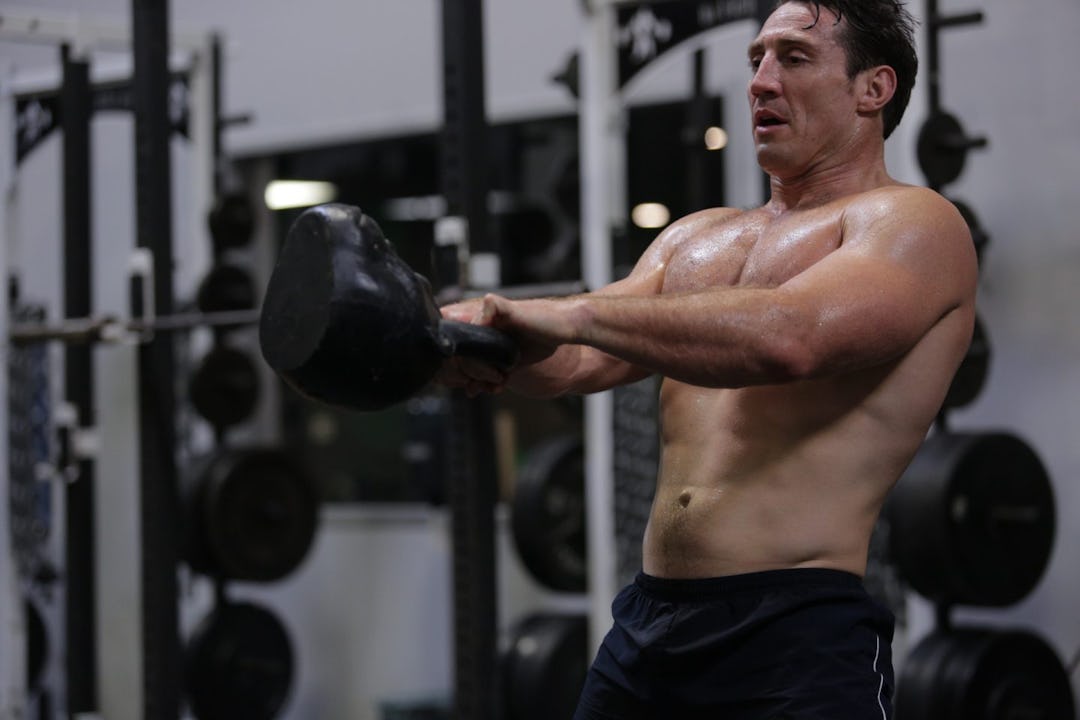
How do you control fear?
Everybody has fear. Last week, for the show, they put me inside of an R22 helicopter and they took me out over the ocean in the arctic and they crashed the helicopter into the water. I had to get out of my seatbelt, take off my headset, escape the helicopter, and swim to an iceberg. Do you think I was scared to have that helicopter plunge into 34-degree water? Damn right. But the thing that made me know I wouldn’t freeze to death or hyperventilate or drown was, again, all the little decisions I’d made before. You control fear by asking yourself what you’ve done in preparation.
Lots of guys fancy themselves bad asses. Is there some kind of test people can take to measure their readiness as a warrior?
You should be able to pick up your kids and run as far as necessary till they’re safe. You should be able to protect your wife. When somebody comes to take what’s yours, you should be able to stop them. Those are the standards of measurement that I would use to describe somebody as a warrior. It’s not being able to do 100 pushups. It’s more like, if you walk into my house and I didn’t invite you, you’re going to be going out the same door you came in and nobody behind me is going to get hurt because I have the physical capability to defend them.
You’ve sacrificed and devoted so much of your life to protecting America and Americans. Does it bother you that so many of us are ungrateful, effete, and unable to do the things you just described?
No. It’s all about potential. We as a people still have the potential to do the things that made us the greatest country in the world. To do the things that put us on the moon, that built the Golden Gate bridge, dug the Panama canal, and stopped fascism and communism. The people I see today are the same people who did those things then.
Have you reached your full potential yet?
No. I’m just getting started. I think with the platform that I have on TV, the opportunity I have to affect people’s lives is going to continue to grow. And personally, I still think I’m going to get stronger, I’m going to get faster, and I’m going to shoot better. I’m going to be a more dangerous version of myself. Plus, I’ll be a better father and brother, a better lover to my wife, and a better teammate.
Watch for Tim Kennedy’s new show, Hard To Kill, debuting July 31 on The Discovery Channel. Visit Kennedy at timkennedy.com and follow him on Instagram, @timkennedymma
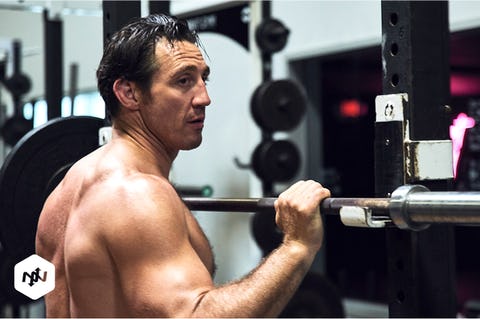
)
